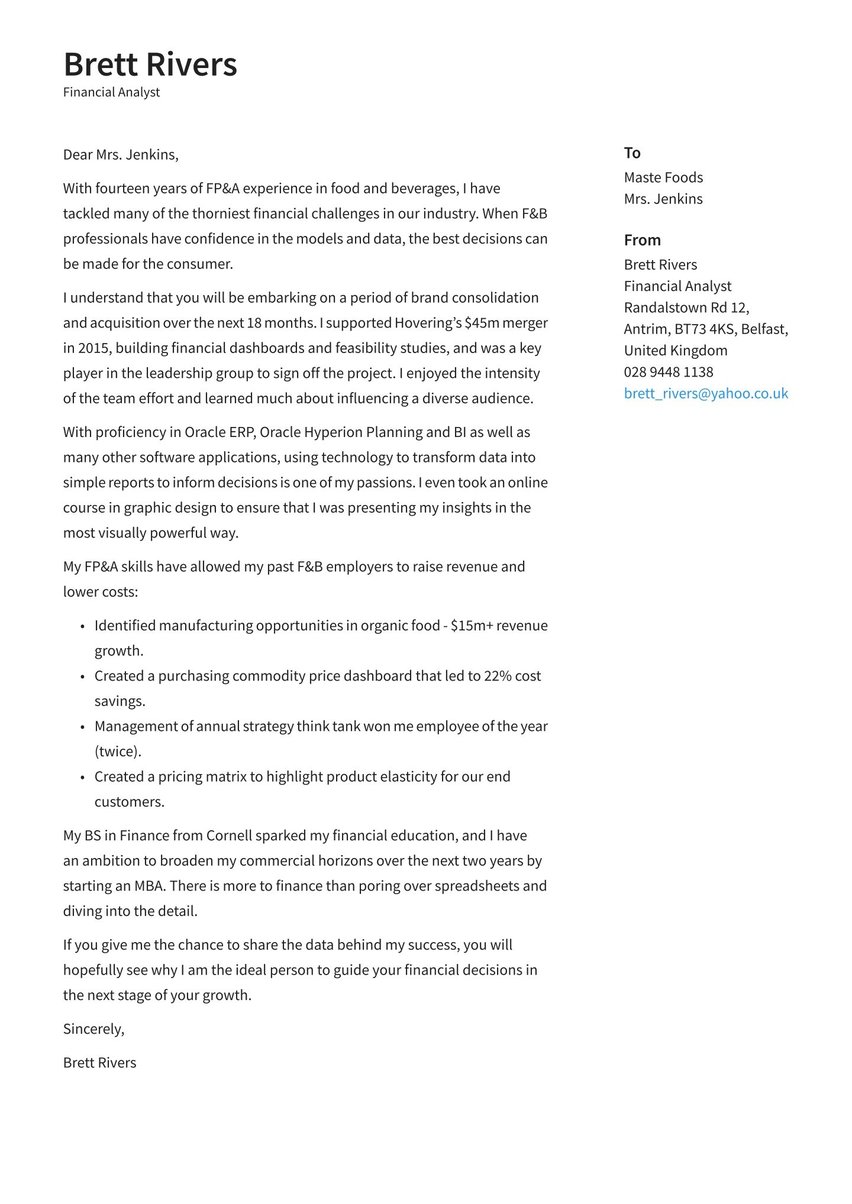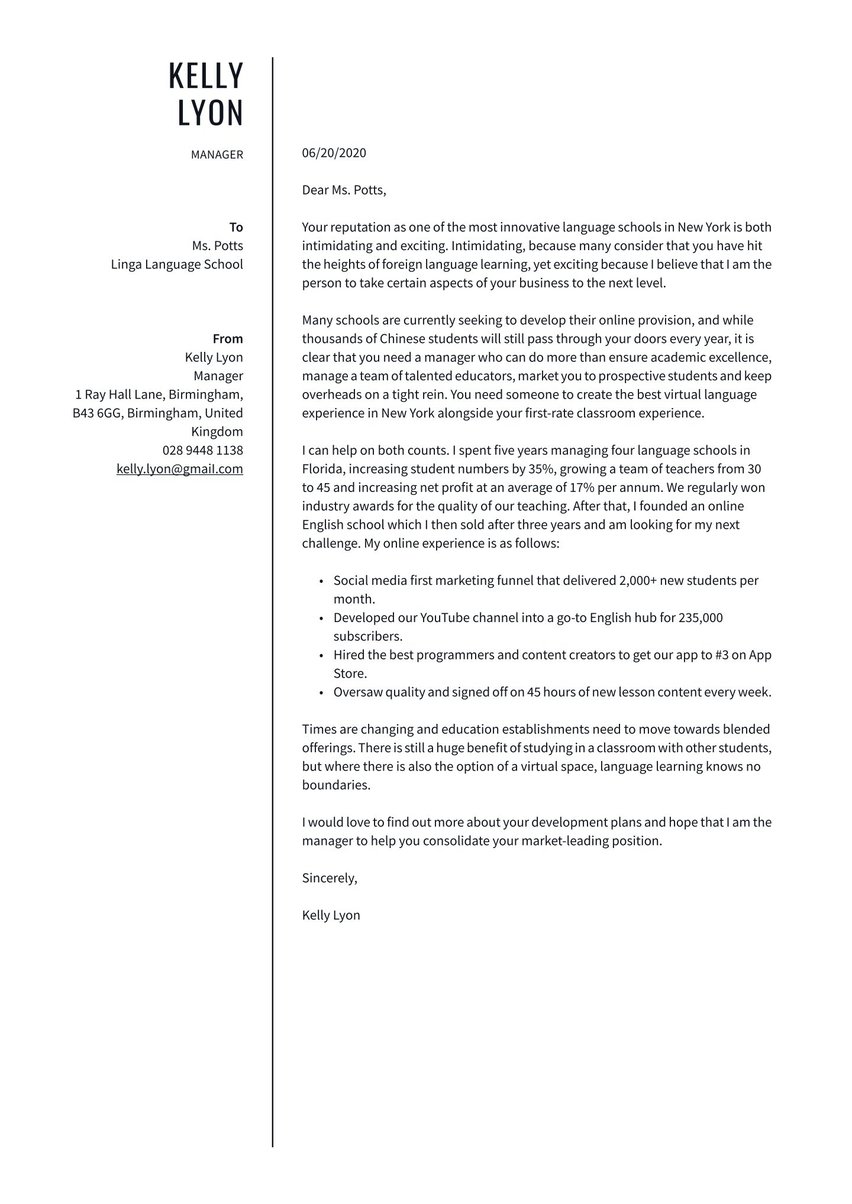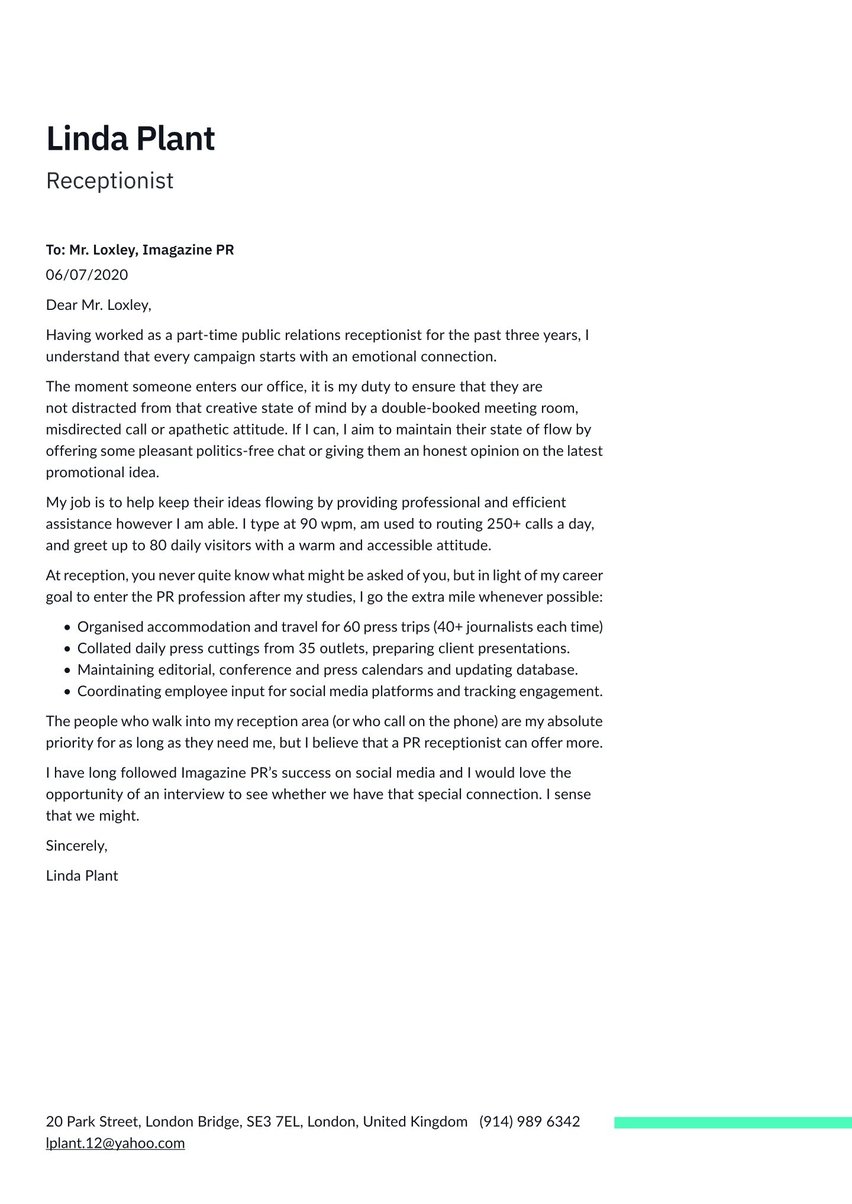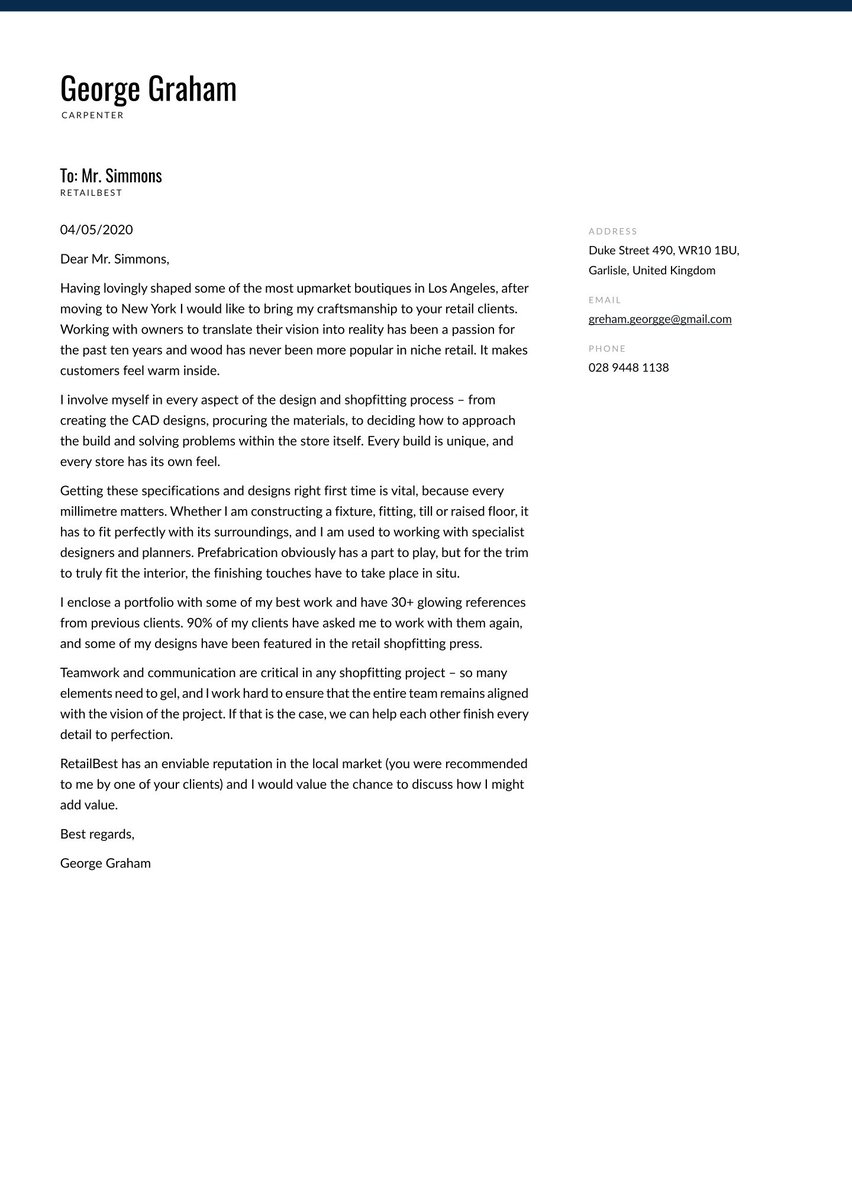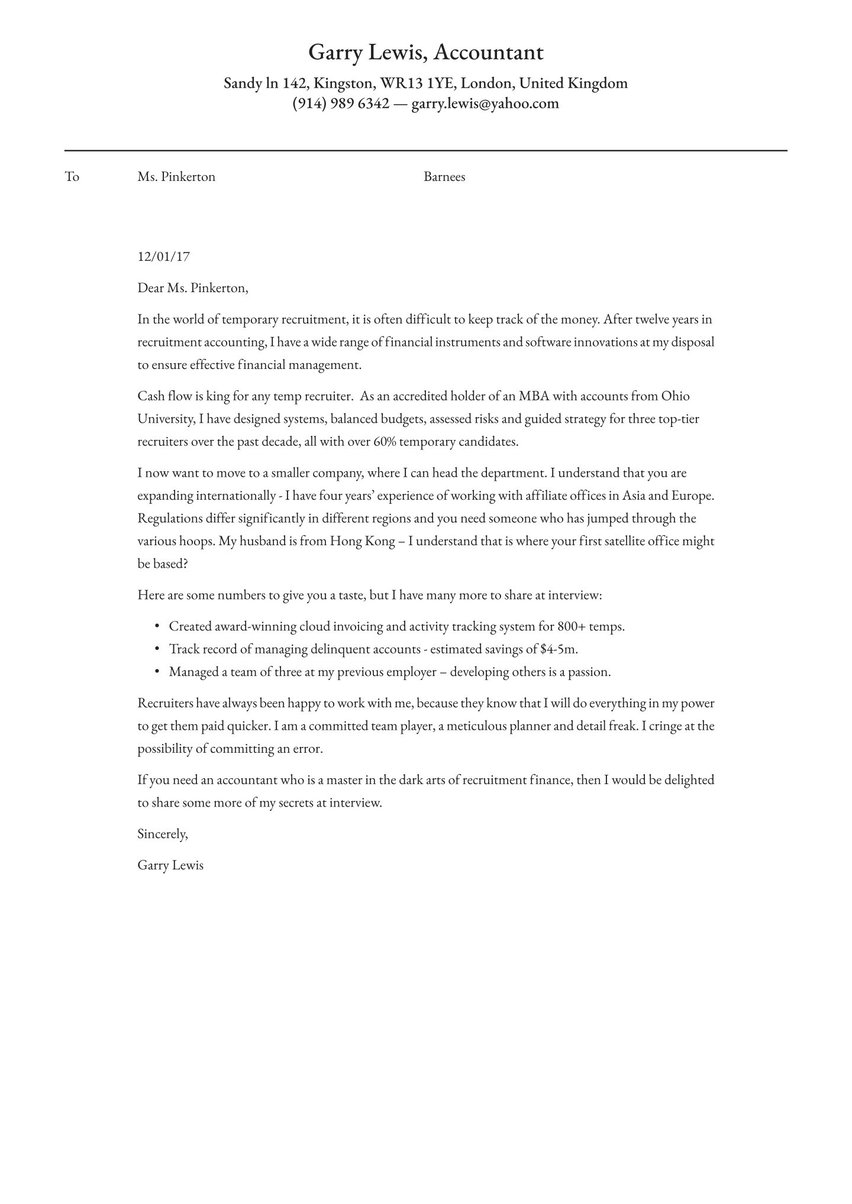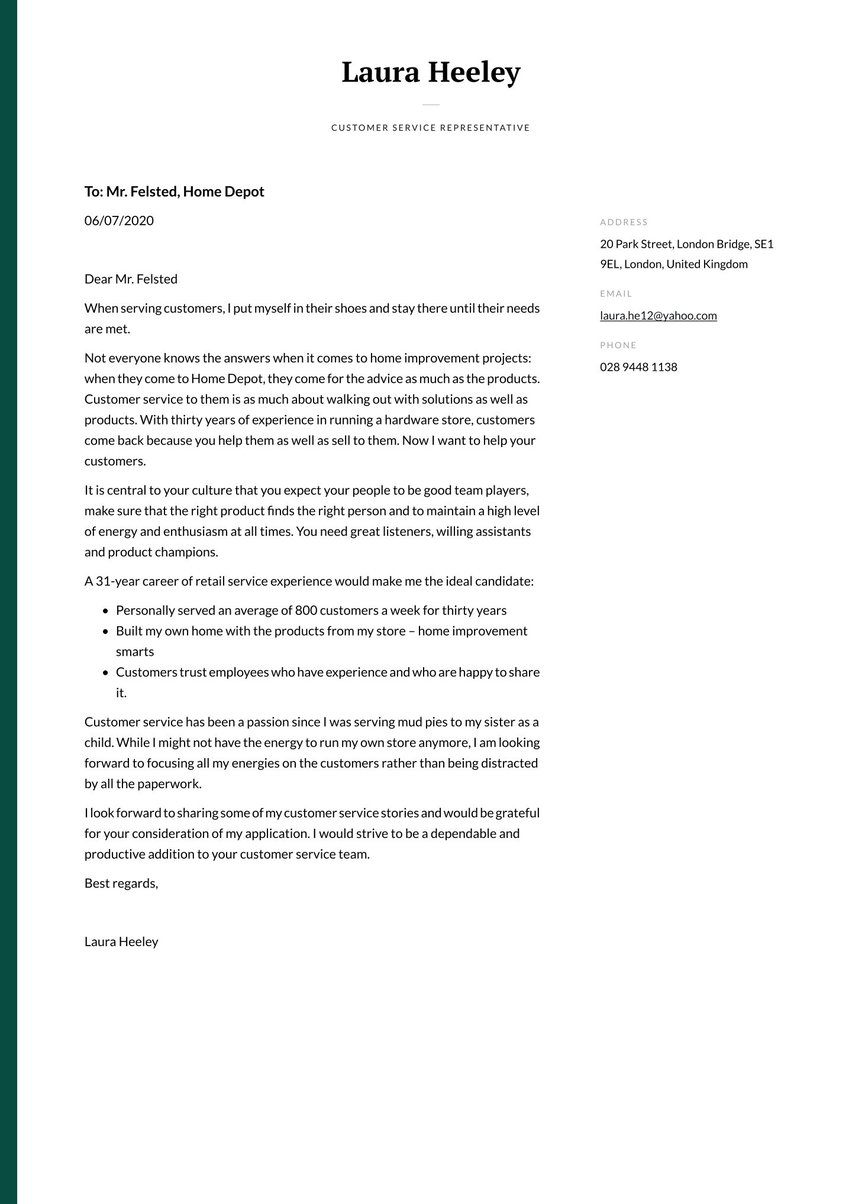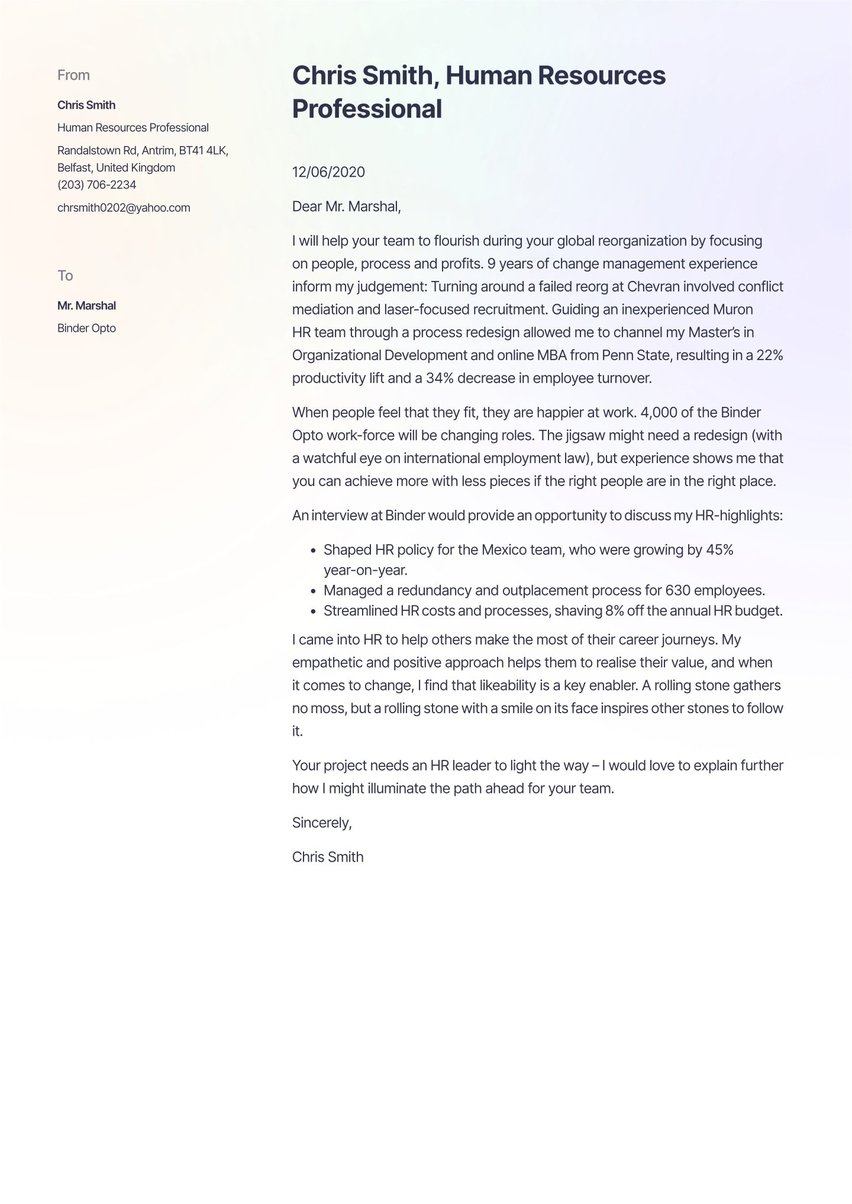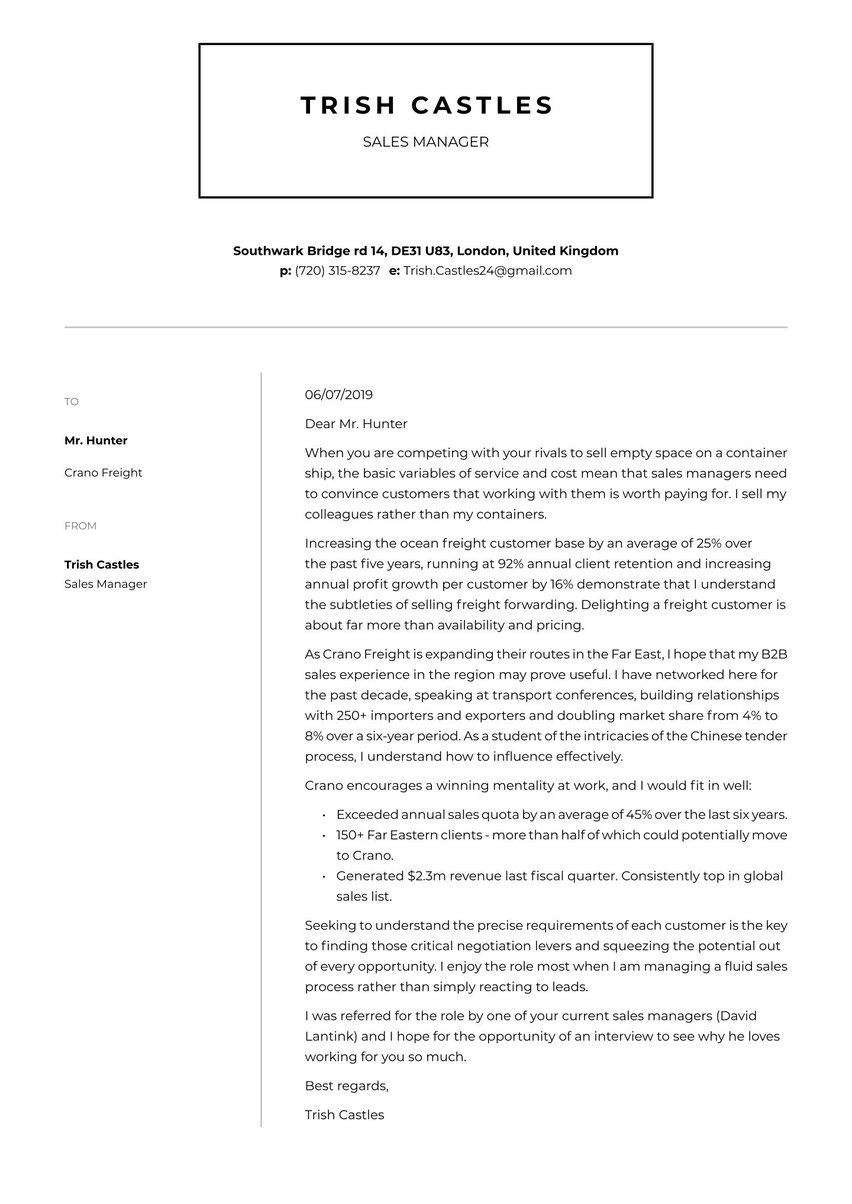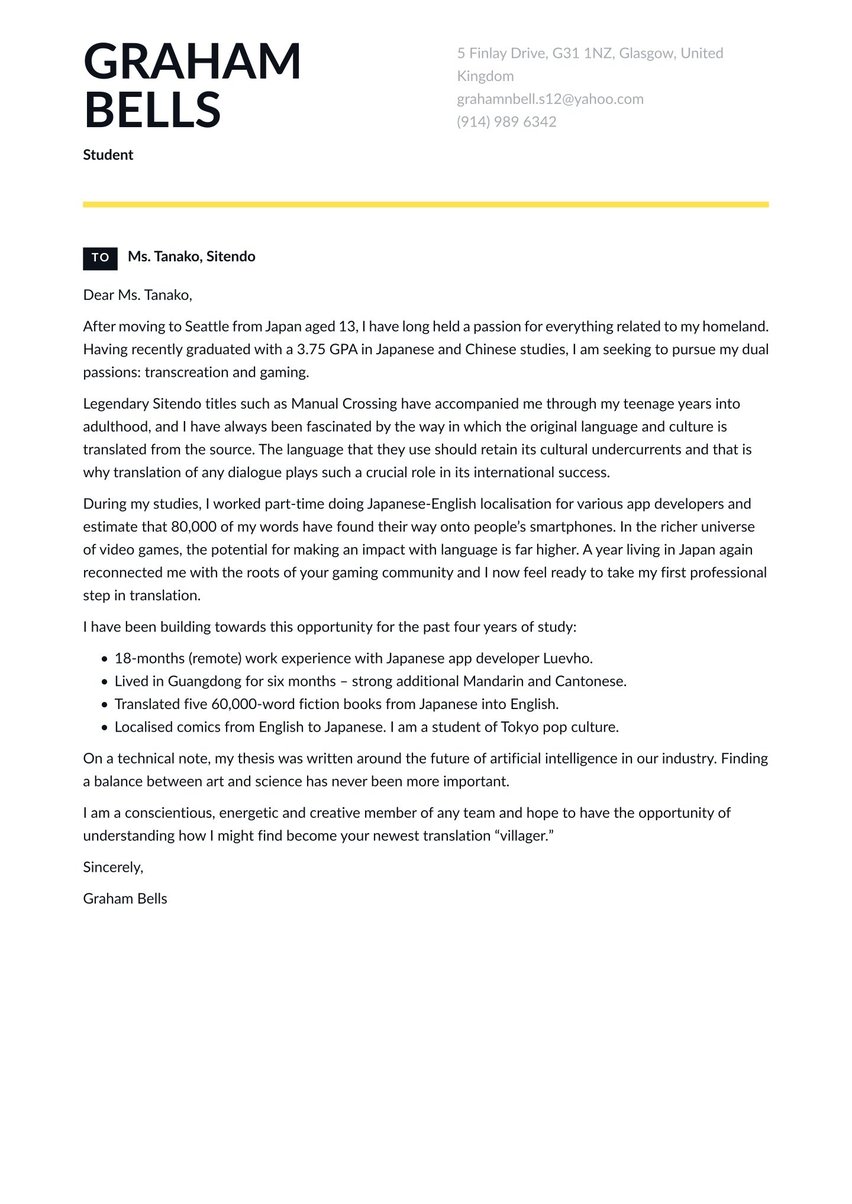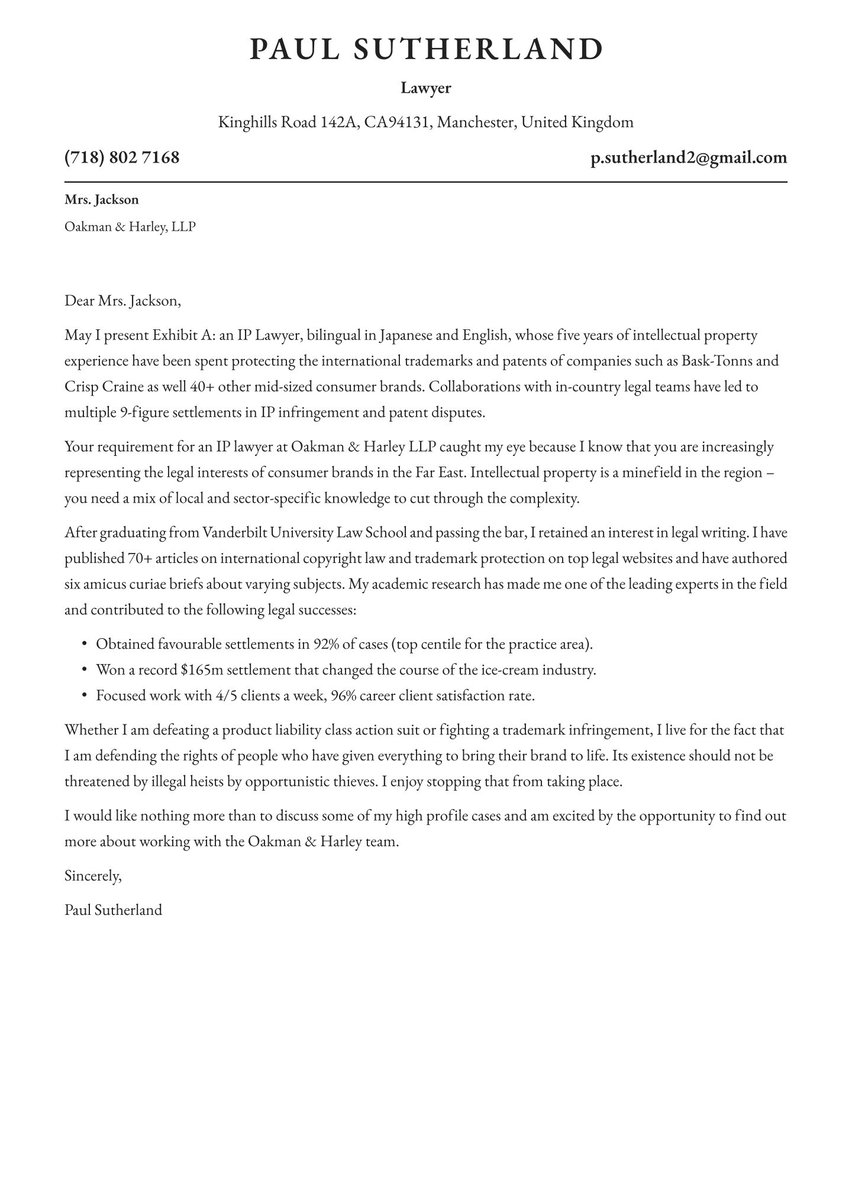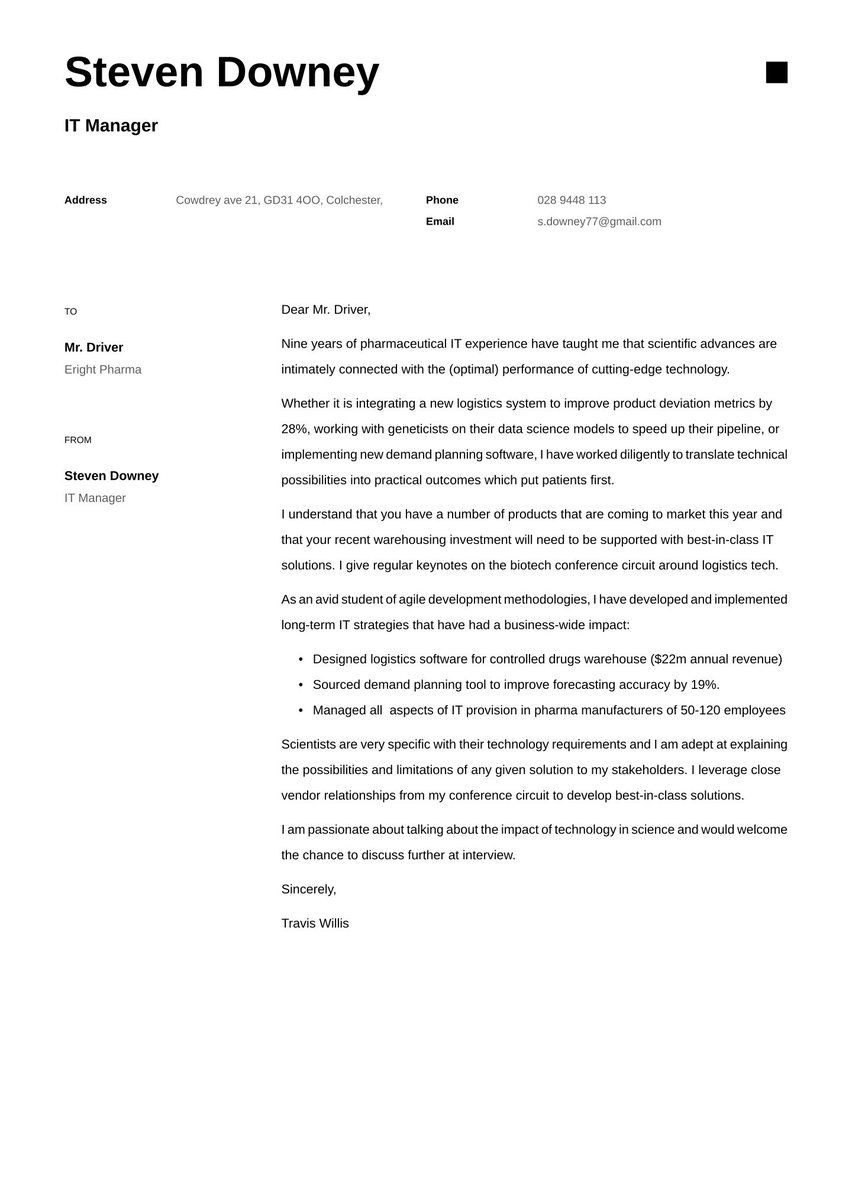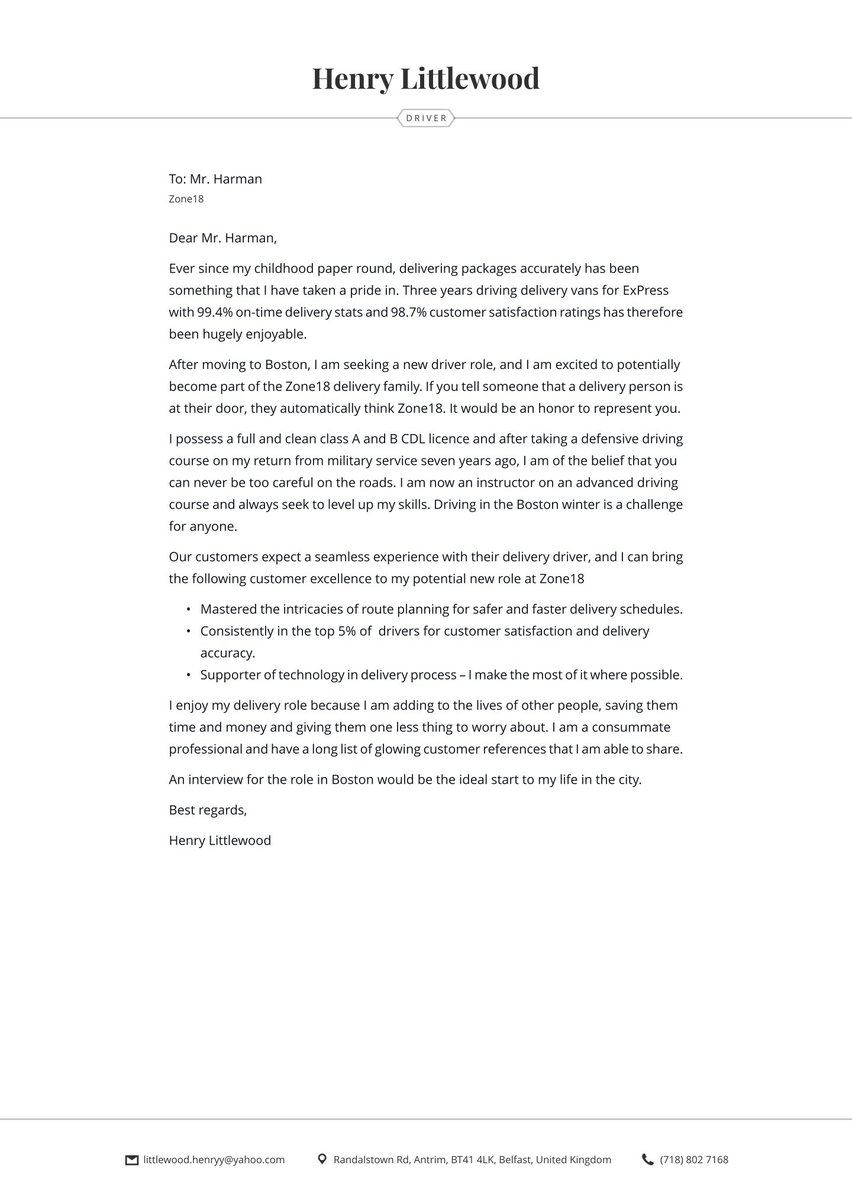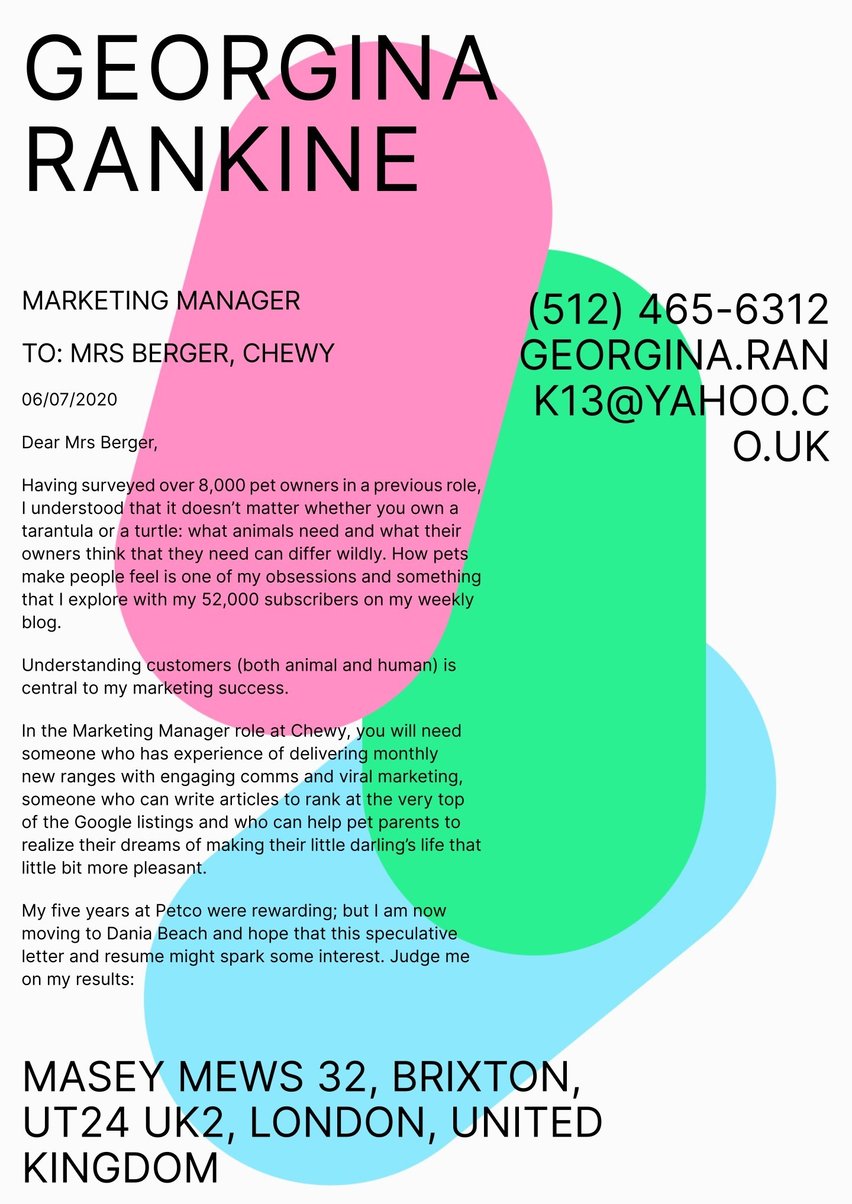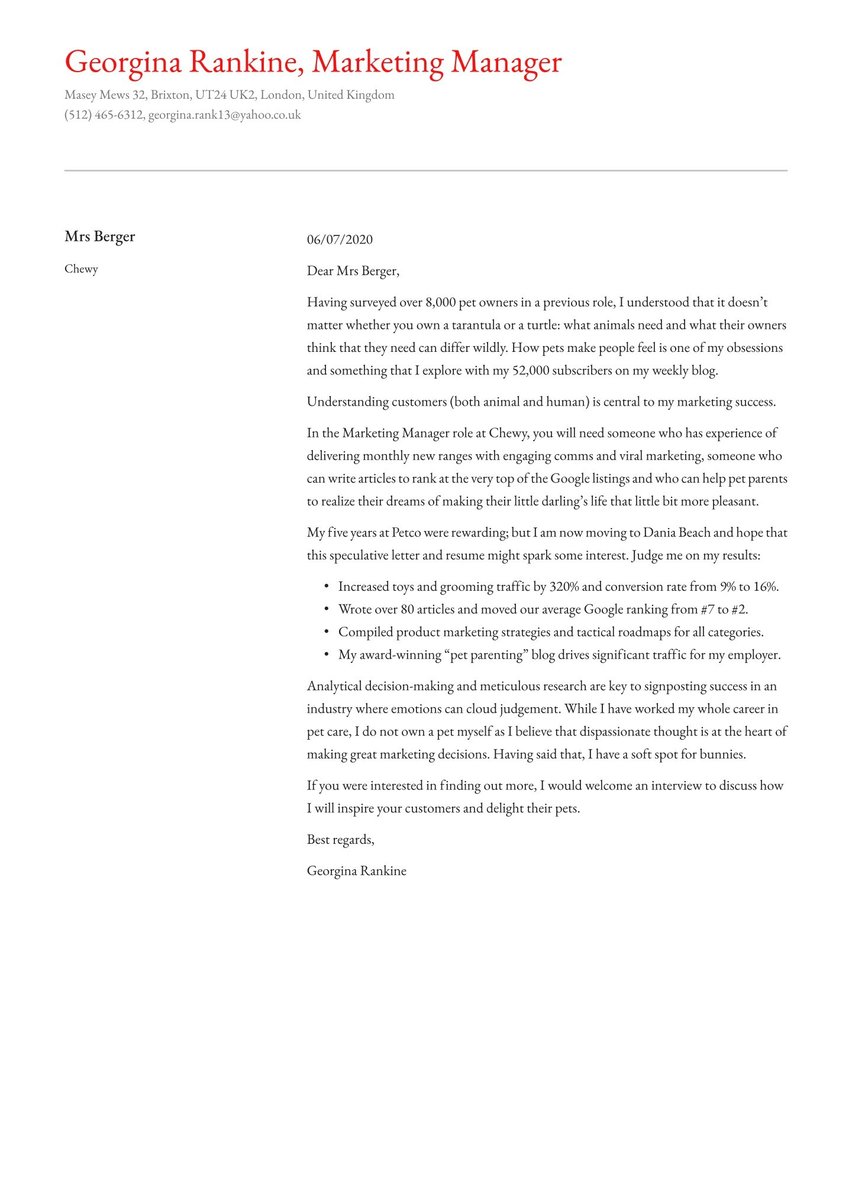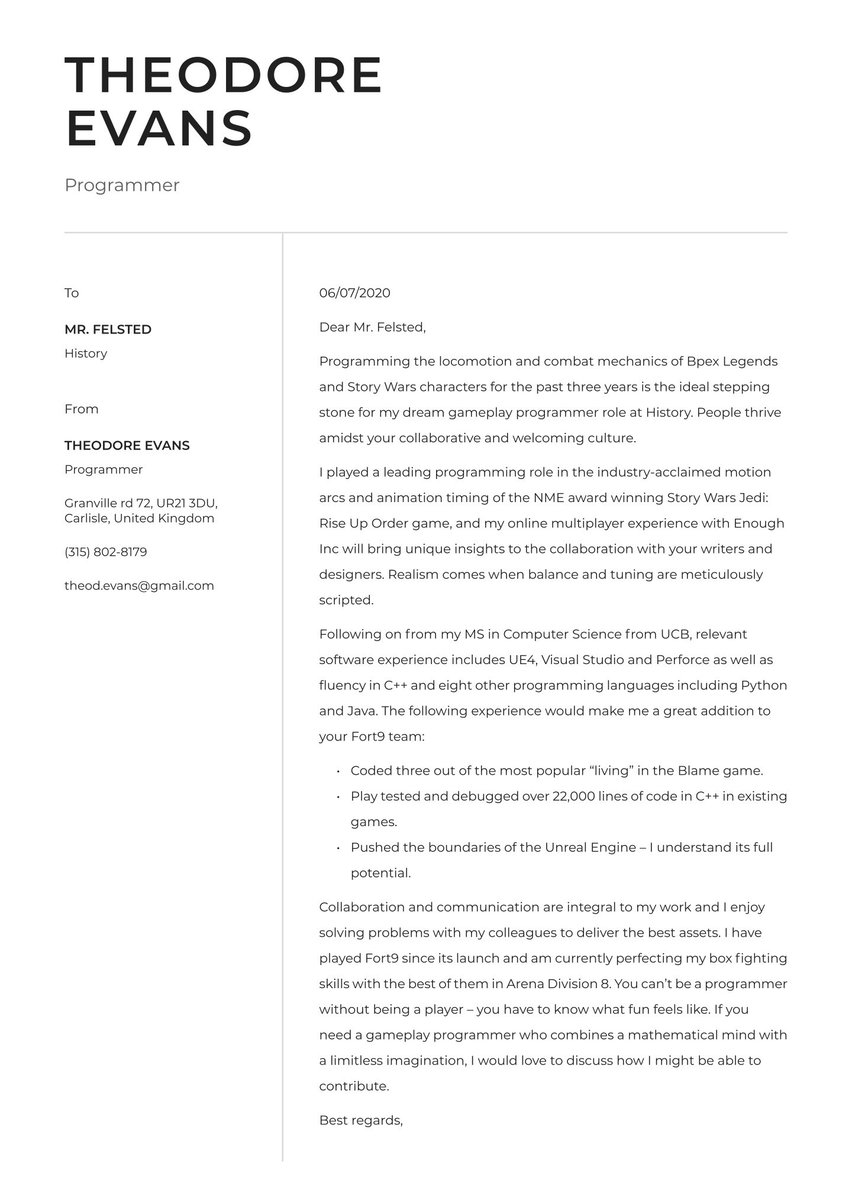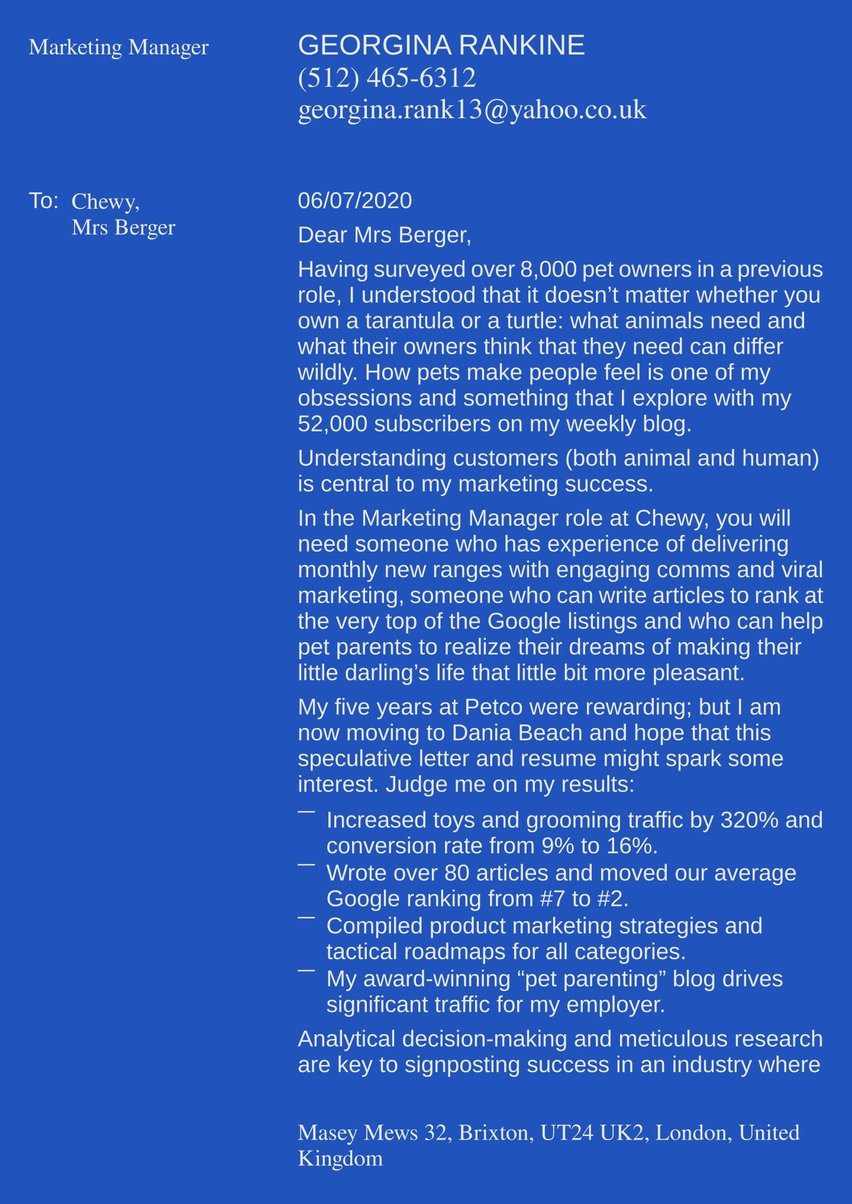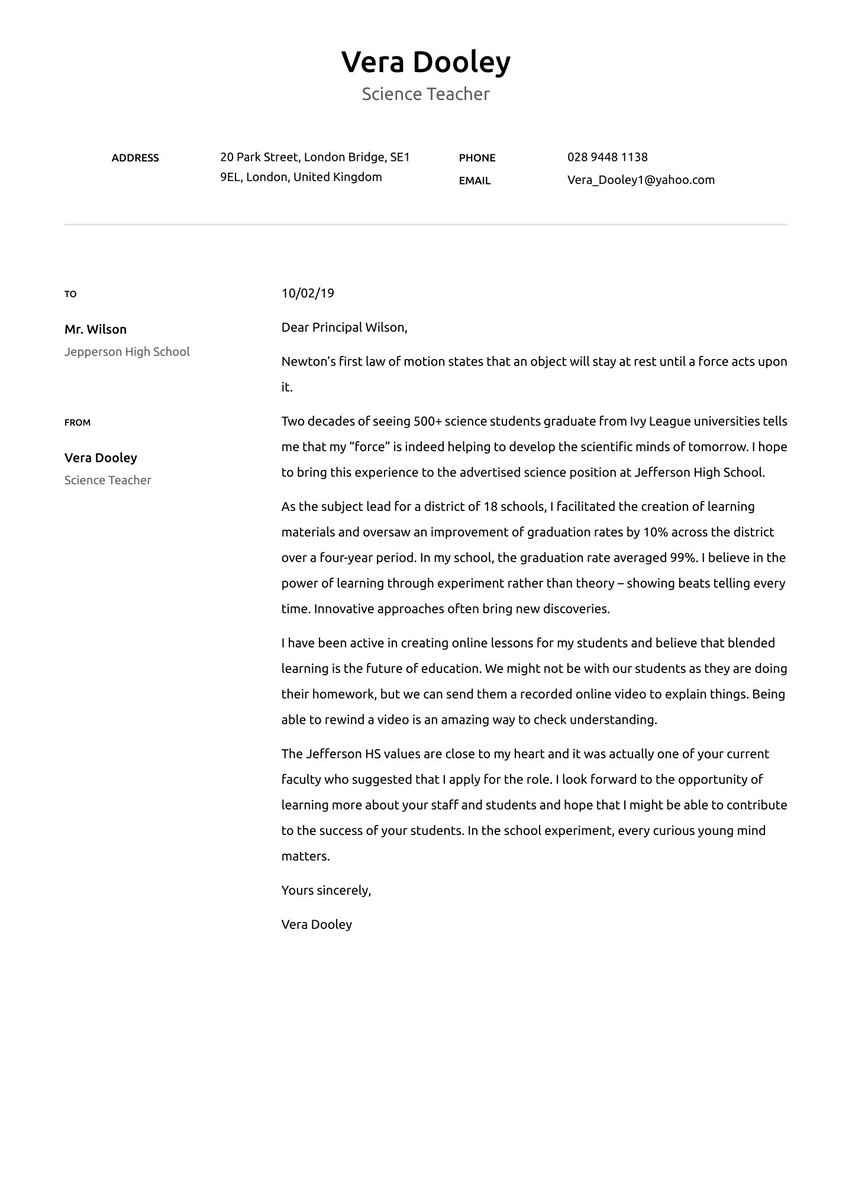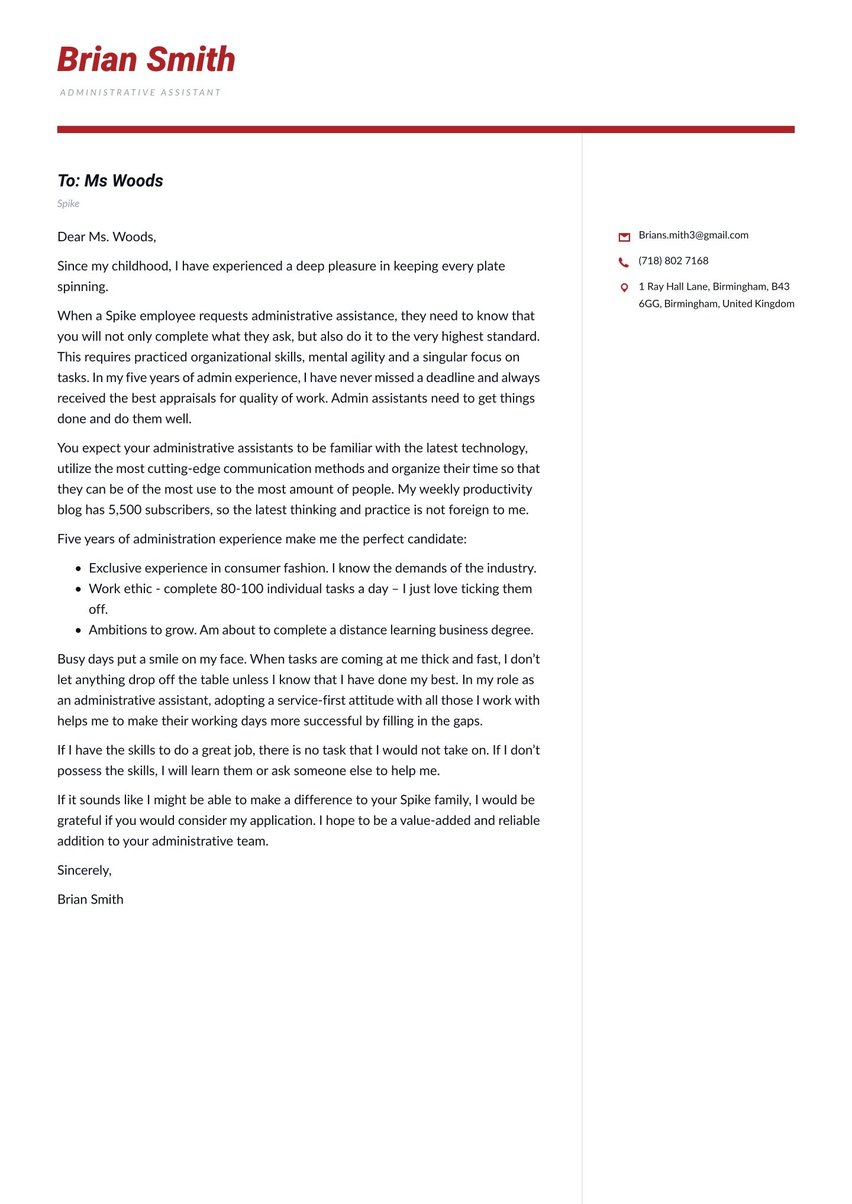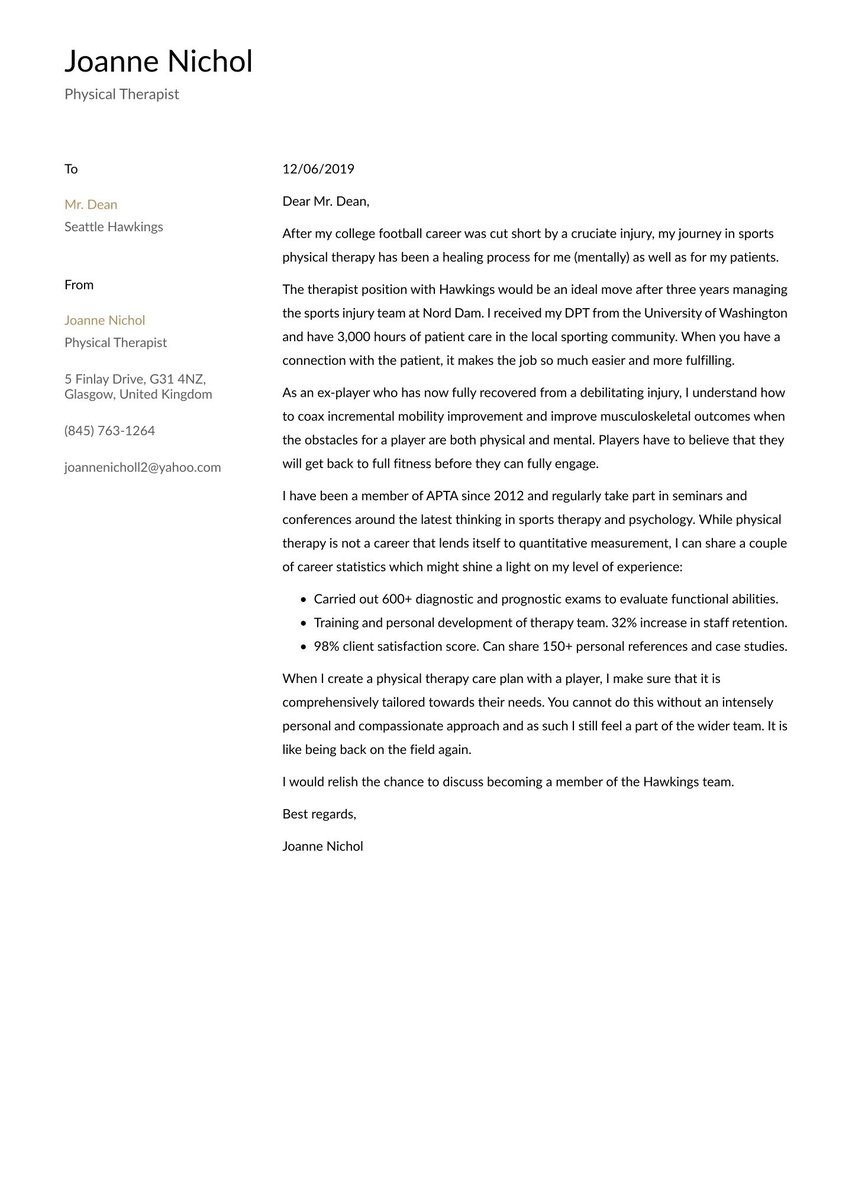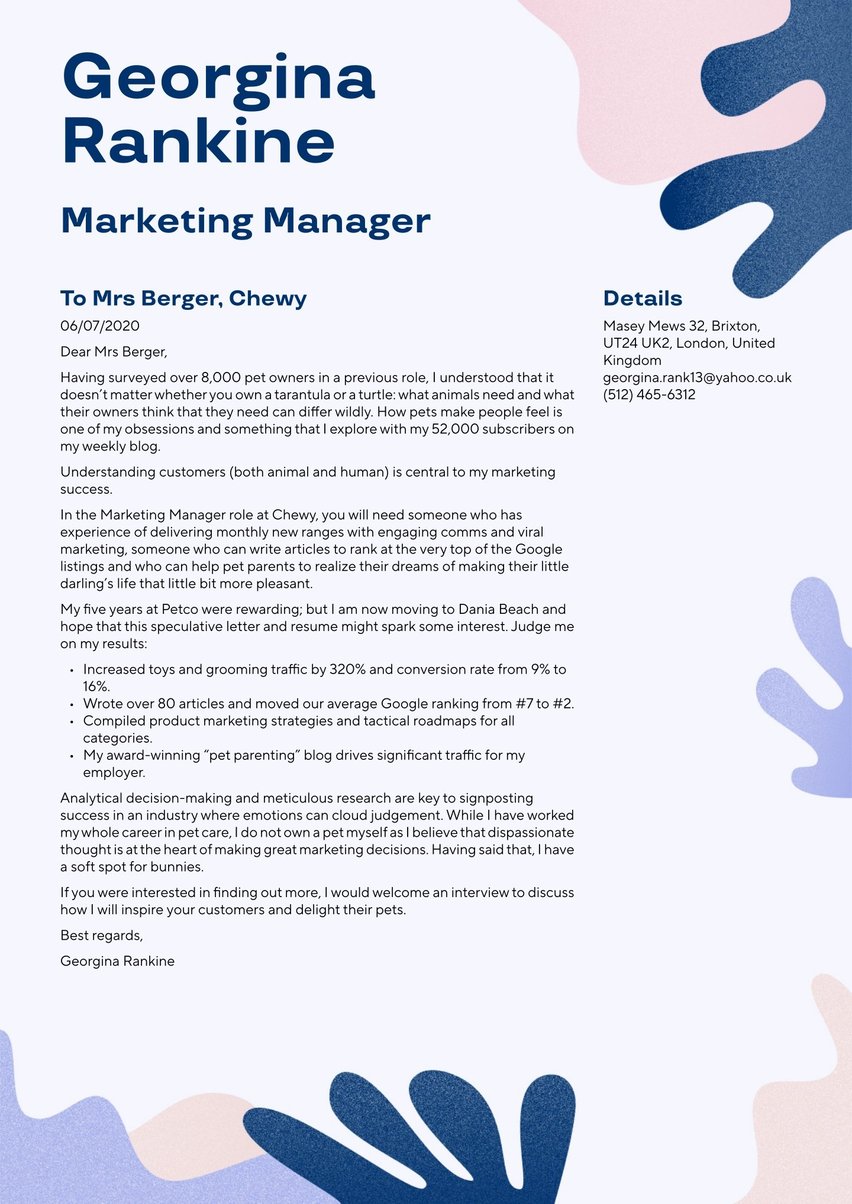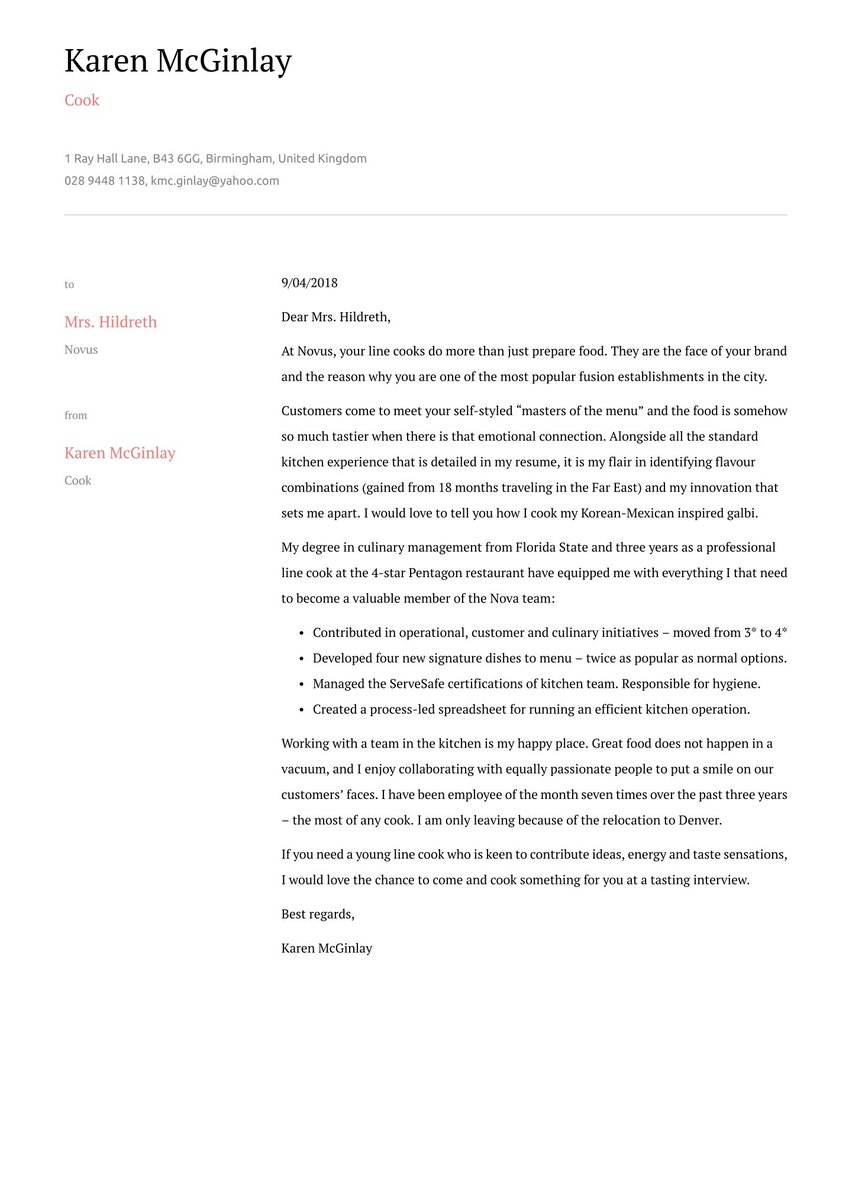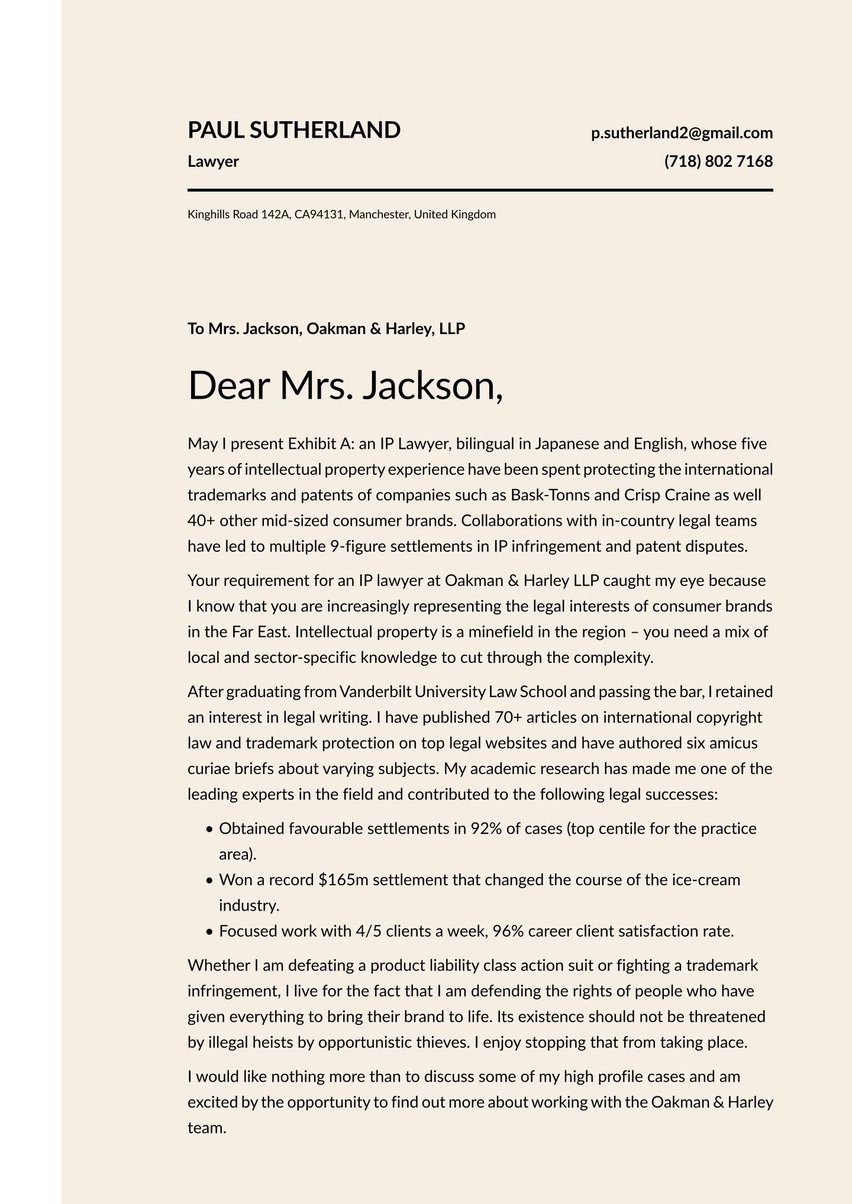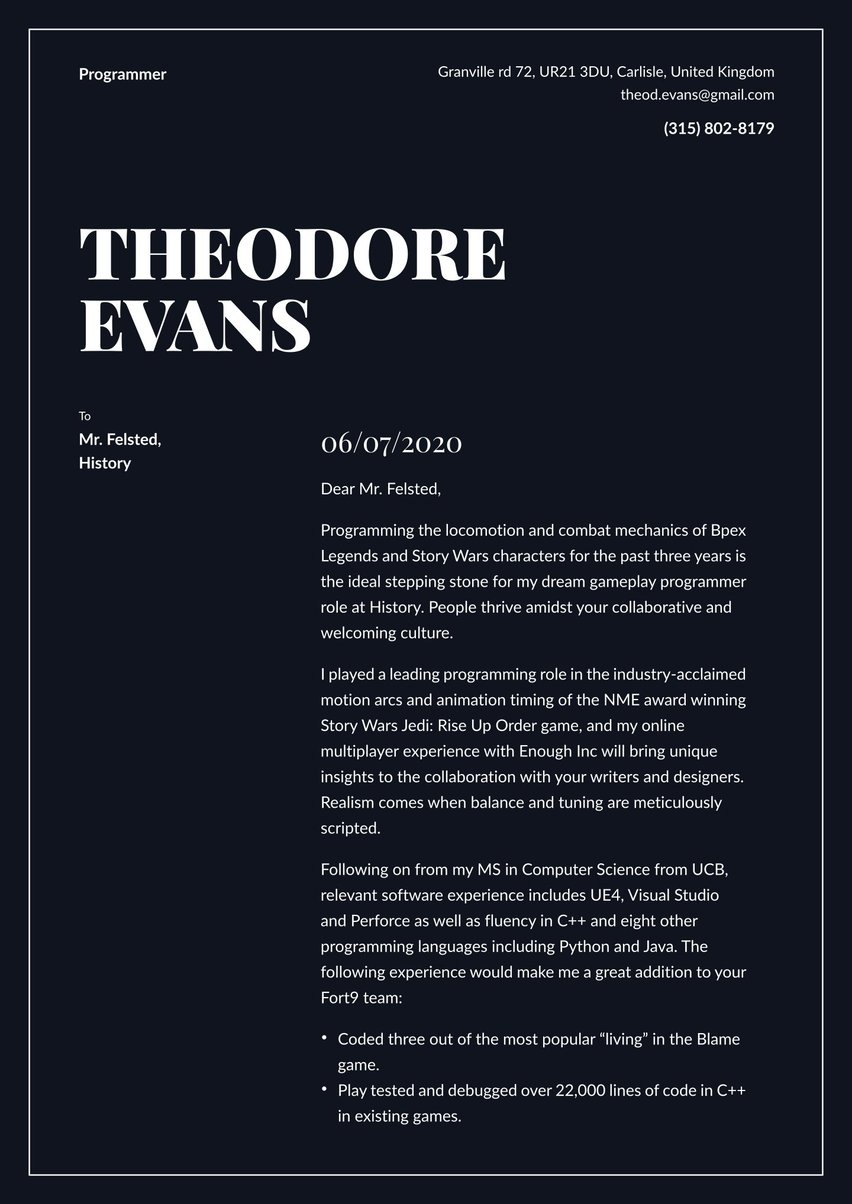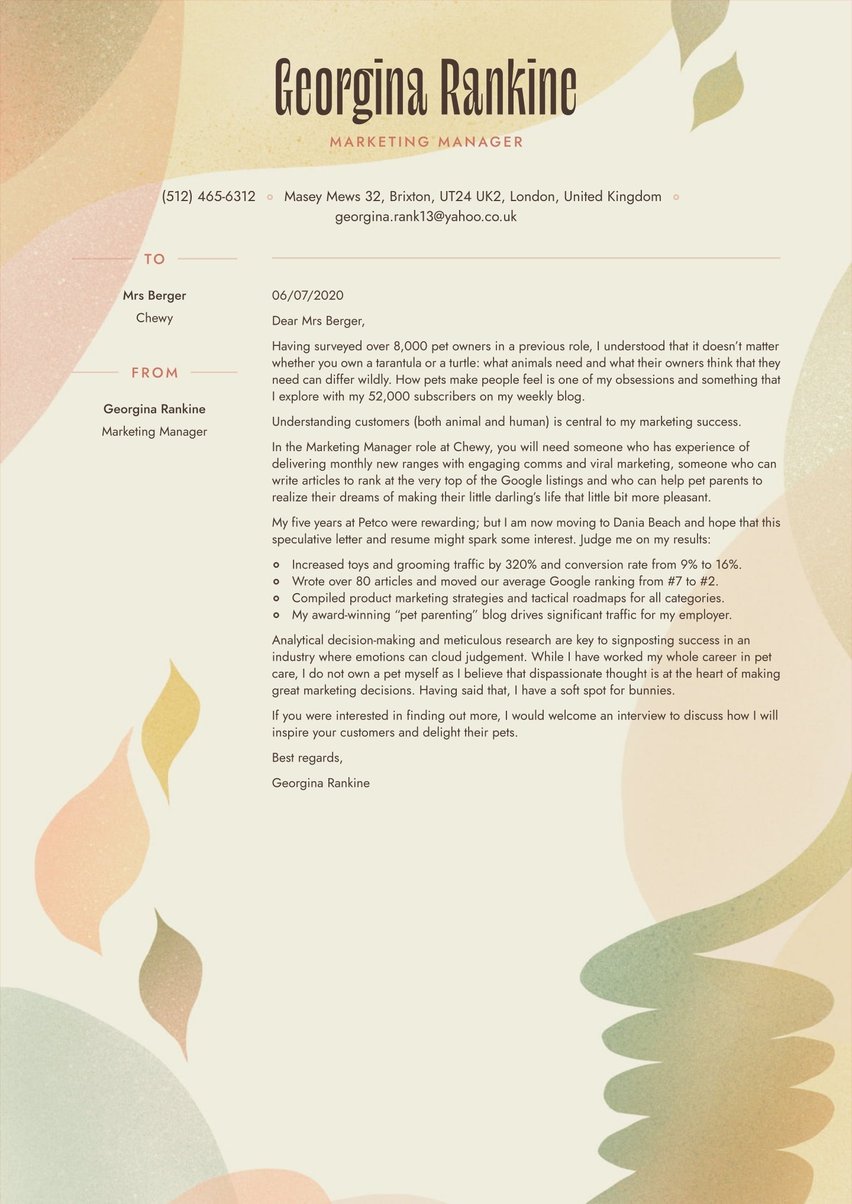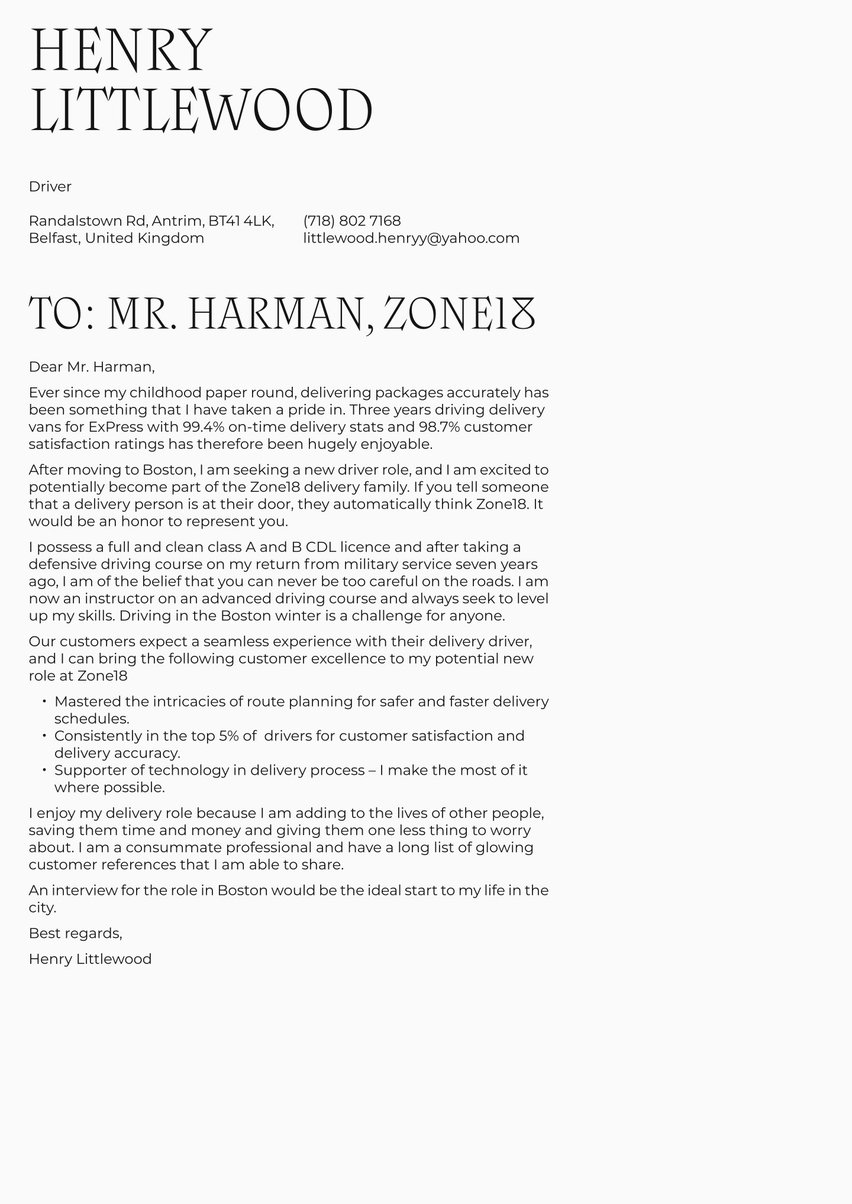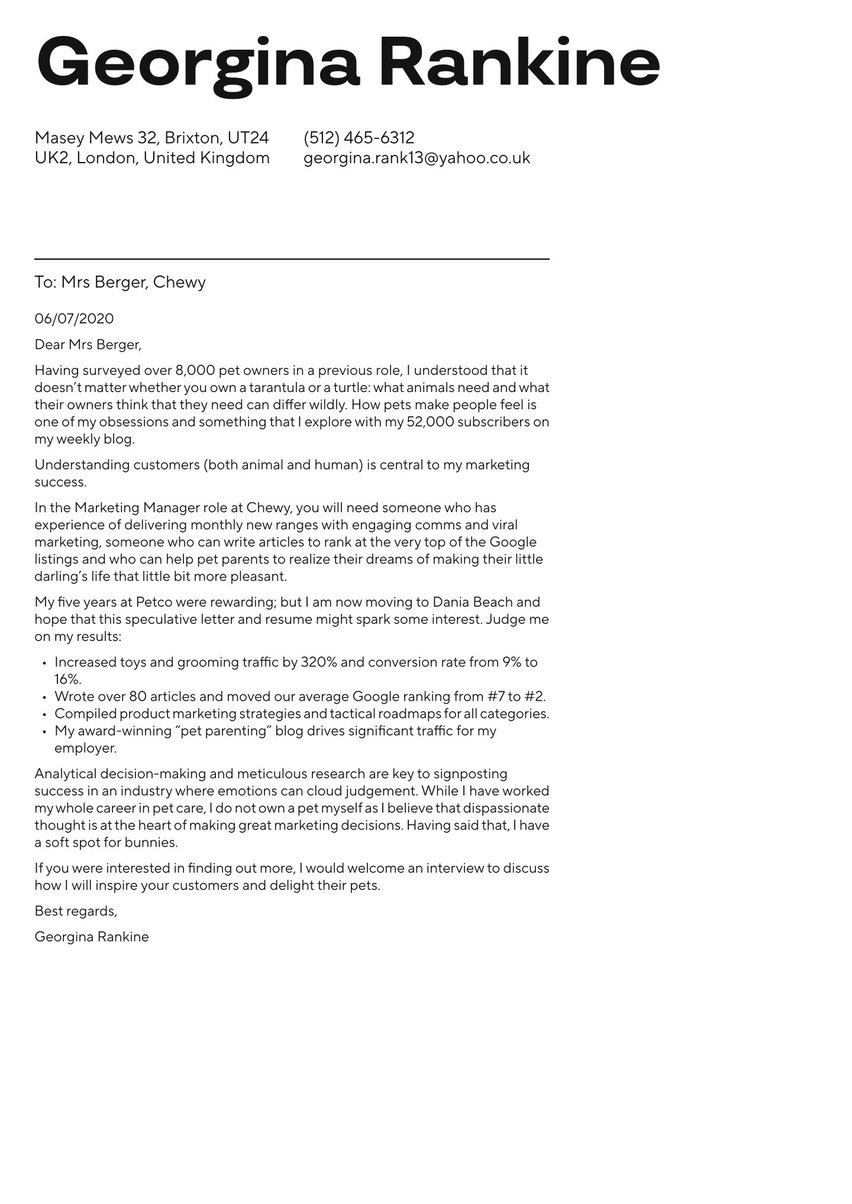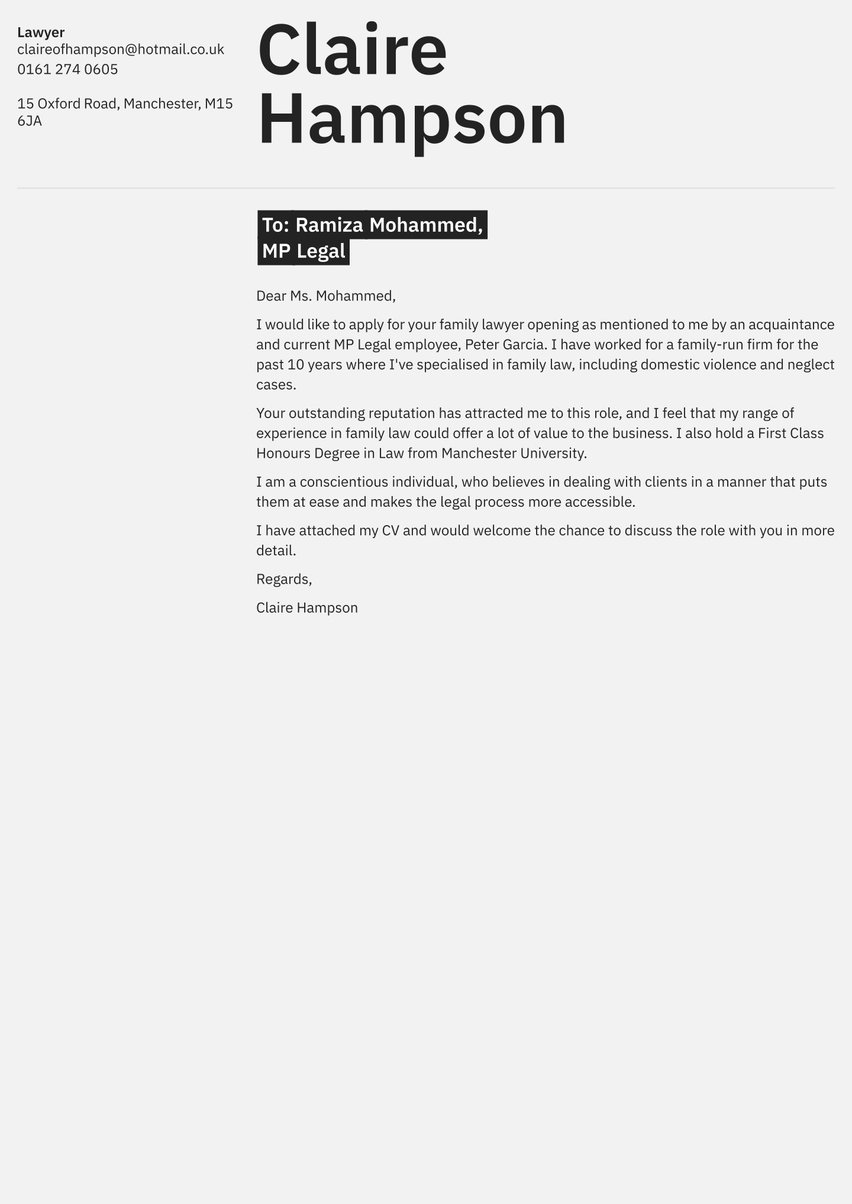No matter where you work in the legal profession, the ability to draft a coherent argument is a central part of the job. In an industry of precision and persuasion, every word should be carefully chosen and thoughtfully deployed. When it comes to writing a legal cover letter when you are looking for a new role, you need to make those words count. Your career is on the line because you can be sure that the hiring manager will have insanely high standards.
The messages within a legal cover letter are different to those in a CV. Your CV will be a somewhat dry factual record of your career, your most impressive achievements, and your most valuable skills. Law requires a huge amount of study, so this will also be included. A cover letter is different – this should contain your specific motivations for the role and hints about the personality that you bring to your work.
This is important. Not every CV can be tailored for each individual role (recruiters may only have one to send out), so tailoring your cover letter for each role is so important. Employers understand this – they look to a legal cover letter for the nuances in the application.
At Resume.io, we can help you to create a cover letter that hits all the right notes. We have a selection of cover letter examples you can use to supercharge your job search. In the following legal writing guide and example, we will consider:
- The best format for a legal cover letter.
- Which parts of your legal career story to include.
- Expert advice to challenge your thinking.
- Writing a legal cover letter if you have no experience.
Let’s get into the details of how to create a compelling job search opening argument.
Some of our related cover letter examples may offer inspiration:
Best format for a legal cover letter
No one understands the importance of structure more than a legal professional. Their days are spent piecing arguments together, dealing with documents, and making laws work in their favour. Without structure, you are lost. It may seem obvious, but when you make a series of arguments in your legal cover letter, it is no different. The cover letter should contain:
- The cover letter header
- The greeting / salutation
- The cover letter intro
- The middle paragraphs (body of the letter)
- The ending paragraph of your cover letter
As always with a piece of persuasion, set out your stall from the beginning. What is your strongest argument for your case? Begin the intro with a feeling that you are perfect for the demands of the role – share something that is uniquely suited to what you will be doing.
It will help if you have a good look at the job description. Each legal role will vary, and your cover letter is the only place that you can truly tailor the application. Attention to detail is essential for a legal role, so anything that is irrelevant will not look good for you. If your cover letters stands out from the others as being an ideal fit for the job, your interview invite is guaranteed — even if your stories are not quite as impressive in their magnitude.
The structure for the letter should be no longer than one page. We understand that you enjoy being verbose but keep it simple. Start the stories that you wish to continue. We are delighted to share some further advice in our comprehensive cover letter guide. Our legal cover letter example may also offer some ideas:
Dear Mrs Celant,
I am writing to express my interest in the legal assistant position that is currently being advertised at Smithson Corporate Law. With an NALP Level 3 Diploma in Paralegal Practice and several years of experience working in small, private legal offices, I am confident that my ability to support clients and colleagues alike would be an excellent fit for your fast-growing firm.
In my most recent position as a legal secretary at Johnson Legal, I was responsible for managing the day-to-day operations of the office, including scheduling appointments, maintaining client files, and drafting legal documents. Since filling the role, I have been able to reduce the time my superiors spend amending drafted legal documents by up to 70%. I am often trusted to send standard documents that I have drafted directly to clients.
During my time at Johnson Legal, I had the opportunity to work on several projects that required exceptional attention to detail and organisational skills. One of my most notable achievements was helping a senior partner to prepare for a corporate litigation case, which required me to conduct extensive legal research. Through my research, I was able to identify two previous cases which set a persuasive precedent for our client’s situation, relating to the unusual legal structure of their business. This resulted in our client being acquitted.
I have a proven ability to work collaboratively with others and I believe that my experience and skills make me a strong fit for your legal team.
Thank you for your time and consideration. I look forward to the opportunity to further discuss my qualifications in person.
Sincerely,
Veronica Marble
Cover letter header
The cover letter header should contain your full name, email address and phone number. This information will be repeated from your resume, but you never know when a hiring manager might make the decision to invite you to an interview.
You don’t need to include your full home address here. There are potential data protection issues if you are listed on hundreds of employer databases, so only share this when you are at the offer stage.
Cover letter greeting
The greeting of a cover letter should not be so hard for a legal mind to get right. Formality is important, so a “Dear Mr/Mrs/Ms Surname” will be fine. Try your best to find out the name of the hiring manager. You might even decide to give the company a call to ask – this could be a good opportunity to ask an additional question or two if the person on reception is in a chatty mood. You never know which of these interactions could make a difference.
Cover letter introduction
Pick the story that you start with carefully. It should be something that few other candidates will be able to tell. You might think that going with a common story of success is a good idea, but opting for the non-standard stories will make your experience seem so much deeper. You obviously won’t be able to tell every story in the cover letter, so the hiring manager will assume that you have covered all the basics.
Dear Mrs Celant,
I am writing to express my interest in the legal assistant position that is currently being advertised at Smithson Corporate Law. With an NALP Level 3 Diploma in Paralegal Practice and several years of experience working in small, private legal offices, I am confident that my ability to support clients and colleagues alike would be an excellent fit for your fast-growing firm.
Cover letter middle part (body)
The middle part of the cover letter should then explore some more specific detail. The stories that you share here should cover the sorts of things that you will be doing in your future role. Hiring managers will want to see your experience, but also how you go about your role. It is difficult to inject personality into a CV, so use the free-flowing nature of the legal cover letter to show them what you are like to work with. Use legal jargon where appropriate – this is a business letter, after all.
In my most recent position as a legal secretary at Johnson Legal, I was responsible for managing the day-to-day operations of the office, including scheduling appointments, maintaining client files, and drafting legal documents. Since filling the role, I have been able to reduce the time my superiors spend amending drafted legal documents by up to 70%. I am often trusted to send standard documents that I have drafted directly to clients.
During my time at Johnson Legal, I had the opportunity to work on several projects that required exceptional attention to detail and organisational skills. One of my most notable achievements was helping a senior partner to prepare for a corporate litigation case, which required me to conduct extensive legal research. Through my research, I was able to identify two previous cases which set a persuasive precedent for our client’s situation, relating to the unusual legal structure of their business. This resulted in our client being acquitted.
I have a proven ability to work collaboratively with others and I believe that my experience and skills make me a strong fit for your legal team.
How to close a legal cover letter (conclusion and sign-off)
The close of the legal cover letter should end with one last detail about your suitability. If possible, give the impression that there is much more to come. These cover letter stories are merely starting thoughts for what you wish to discuss at an interview.
End on a positive note and let the hiring manager know that you are looking forward to finding out more during an interview. Most legal jobs will contain a wealth of complexity, so there is only so much that a job description can tell you.
Thank you for your time and consideration. I look forward to the opportunity to further discuss my qualifications in person.
Sincerely,
Veronica Marble
Legal cover letter with no experience
Maybe you are a newly qualified legal professional and are looking for your first full time role. It is unlikely that you will be coming into the legal profession without this education, but your work experience may be thin on the ground.
- Share any intern or volunteer experience that you may have undertaken. This is an important step towards permanent employment. Only share this sort of experience if it is directly relevant to the role in question.
- Demonstrate your reliability, communication skills and analytical ability. These traits are key for any legal professional, but they can be demonstrated as transferrable skills from other roles.
Plenty of people will be looking to take their first steps in the industry, so do not be dismayed if you feel that you do not have a huge amount of experience. Do your best to demonstrate why you have the potential to succeed.
Key takeaways
- Make the cover letter a mix of professional and personal qualities.
- Keep it professional and share the details of your legal qualifications.
- Think about the culture of the company that you will be joining.
- Decide on an attractive layout with our cover letter templates.

